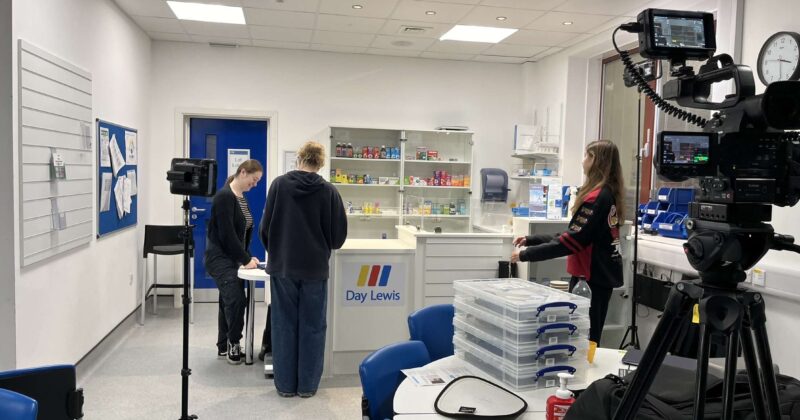By: Atta Naqvi*, Sam Bizley, & Shweta Ghosh, School of Pharmacy
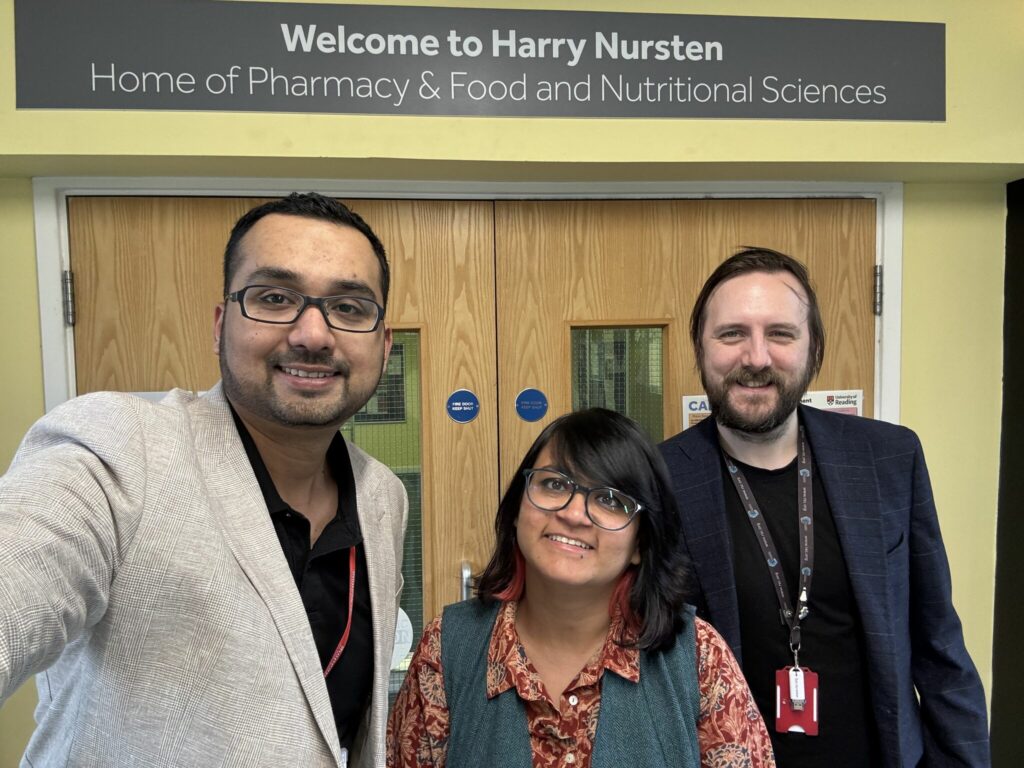
Overview
This innovative project produced four video vignettes that simulated culturally complex patient interactions in pharmacy settings. Developed collaboratively between the School of Pharmacy and the Department of Film, Theatre & Television (FTT), the vignettes enabled students to reflect on non-verbal cues, patient diversity, and inclusivity. The project was funded by the Teaching and Learning Enhancement Projects (TLEP) scheme and informed by student feedback.
Objectives
- Support pharmacy students in recognising and interpreting non-verbal cultural cues.
- Improve students’ ability to respond inclusively to diverse patient needs.
- Provide simulated exposure to real-world patient communication scenarios.
- Enhance cultural competence education through an interdisciplinary, research-informed approach.
- Build sustainable capacity for future simulation-based learning
Context
The initiative stemmed from cultural competence teaching embedded in the newly accredited MPharm programme. Previous student feedback revealed challenges in recognising non-verbal cultural cues, especially in potentially sensitive scenarios involving pain, gender, and disability. Traditional workshops were insufficient in exploring these making it challenging for the students’ to put the knowledge into practice, prompting the exploration of immersive, simulation-based learning through video vignettes.
Implementation
The project was based on years of feedback from MPharm students on cultural competence education. One year prior, a research study on placement experiences highlighted specific challenges—such as interacting with LGBTQIA+ individuals, patients from the d/Deaf community, and those who underreport pain due to cultural norms. Dr. Naqvi proposed developing video vignettes as a simulation method to observe and reflect on these challenges. The School of Pharmacy collaborated with the FTT to develop four vignettes: a d/Deaf patient using an interpreter, a trans patient engaging in health consultation, a Southeast Asian woman downplaying pain, and a Western patient masking pain with a smile.
Dr. Naqvi wrote the scripts, which were reviewed by Dr. Bizley and Dr. Ghosh. Two FTT student teams undertook production planning, script refinement, shooting and editing via the Commercial and Community Filmmaking module through Semester 1 of 2024/25, with filming taking place at the JJT Clinical Suite between December 2024 and January 2025 (see Figures 1& 2). The vignettes were delivered as workshops in Years 3 and 4 of the MPharm programme during April–May 2025 and reached over 200 students.
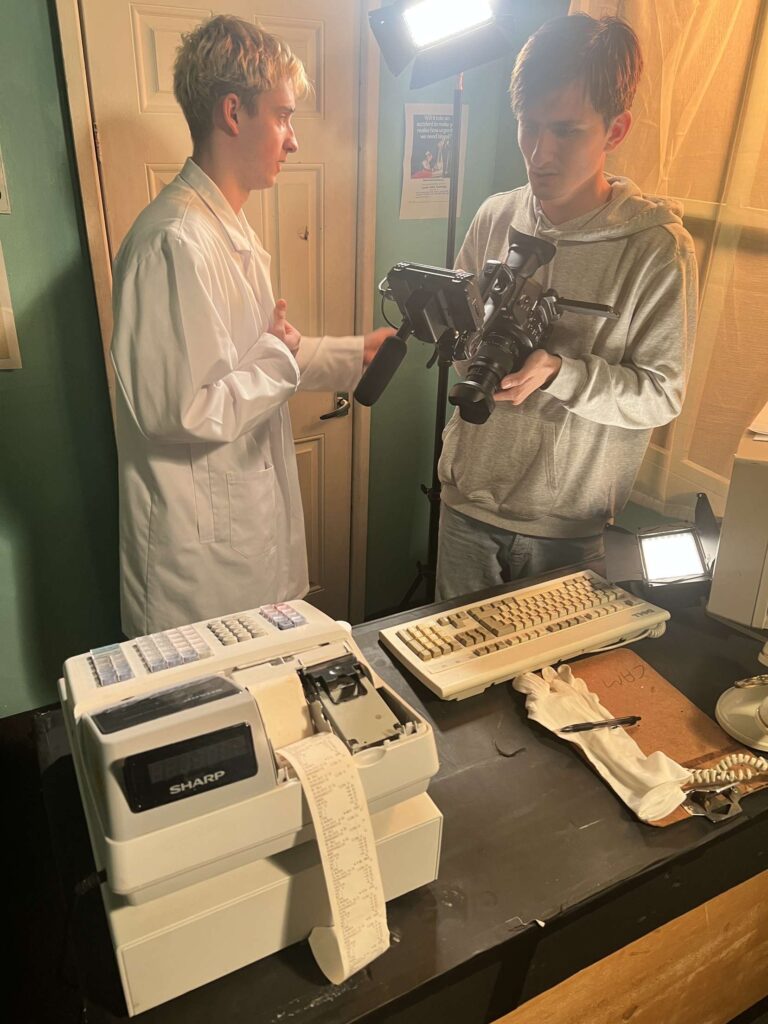
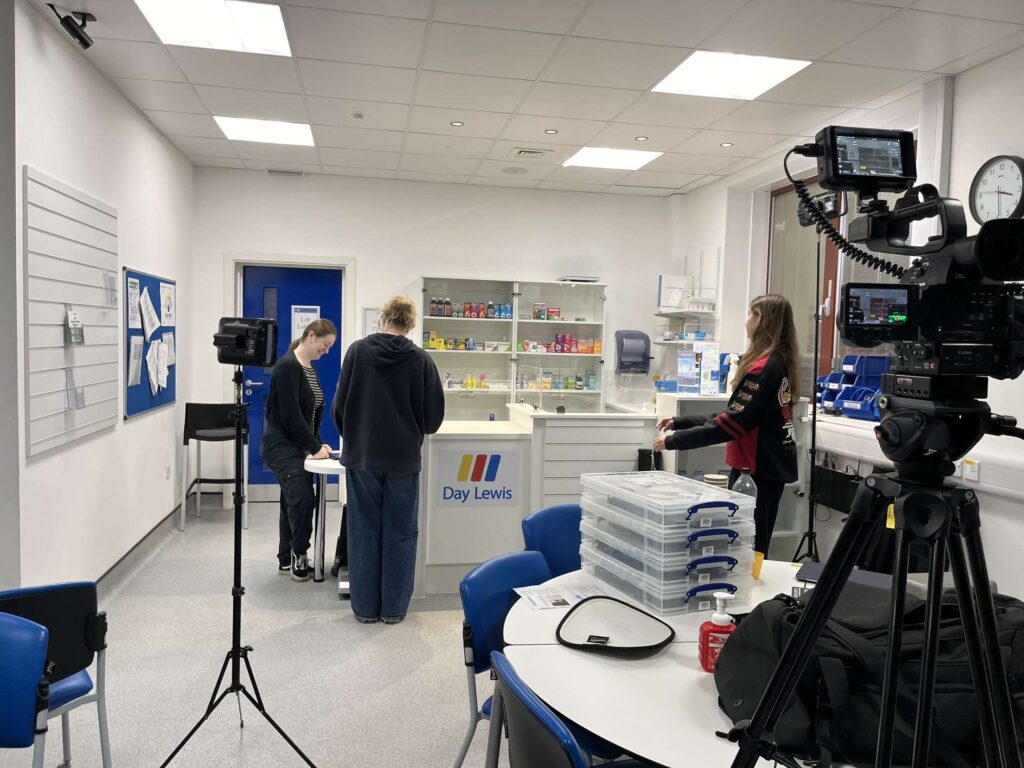
Impact
The workshop sessions using the vignettes received positive student feedback, with learners expressing increased confidence and awareness in interpreting cultural cues (see Figure 3). The activity enabled students to better understand the complexity of patient communication and to reflect critically on their own approaches.
A follow-up research study is currently collecting data to formally evaluate the educational impact. Early responses indicate that the use of realistic, context-rich simulations fostered deeper learning compared to traditional methods. The project demonstrated a successful interdisciplinary collaboration, fostered a student-centred learning approach, and set the groundwork for integrating film-based simulations into healthcare education more broadly.
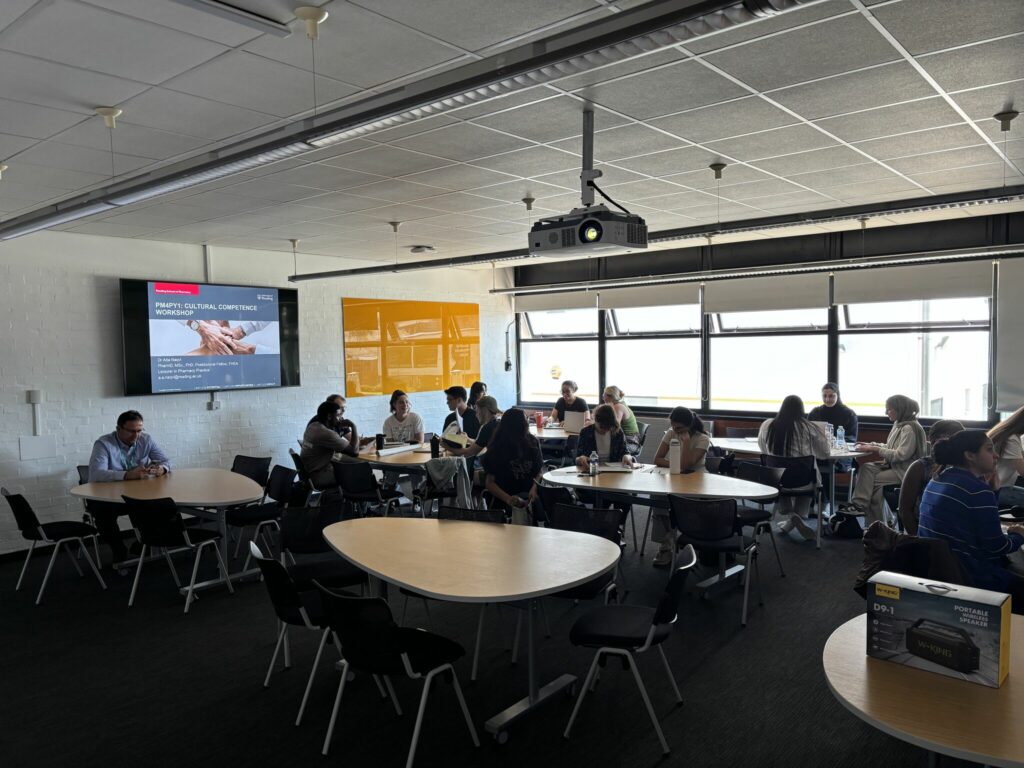
Reflections
This project’s success lay in its deep grounding in student feedback and educational research. Unlike traditional lectures or workshops, the video vignettes enabled learners to visually and emotionally engage with complex scenarios. Students appreciated the diversity of the patients represented, including those with visible and invisible cultural differences. The collaboration with the Department of Film, Theatre & Television proved invaluable—not only for technical expertise but also for storytelling and visual representation.
One challenge was the logistics of coordinating actors, locations, and filming during term time. Another area for development is expanding the scenarios to include more intersectional and multi-lingual cases. Familiarity with the filmmaking process has equipped our team to undertake similar projects in the future more independently. Overall, this experience has encouraged new forms of pedagogical creativity and interdepartmental collaboration.
Follow up
A research study is currently underway to evaluate the impact of the vignettes on student learning. The team has acquired filmmaking equipment through the TLEP fund, enabling future projects. We aim to expand our vignette library and welcome collaborations with educators at Reading and beyond.
